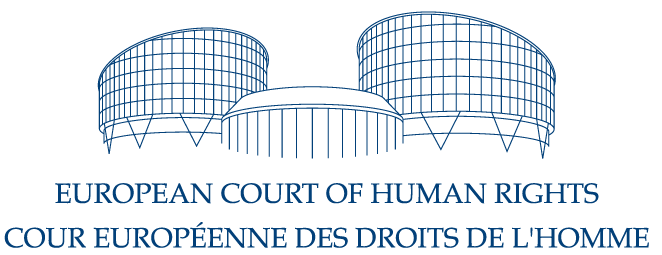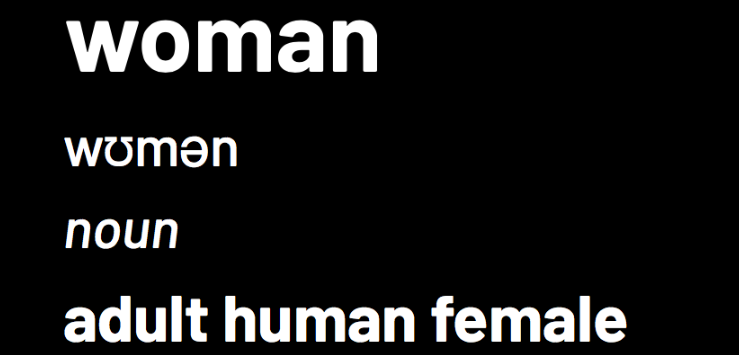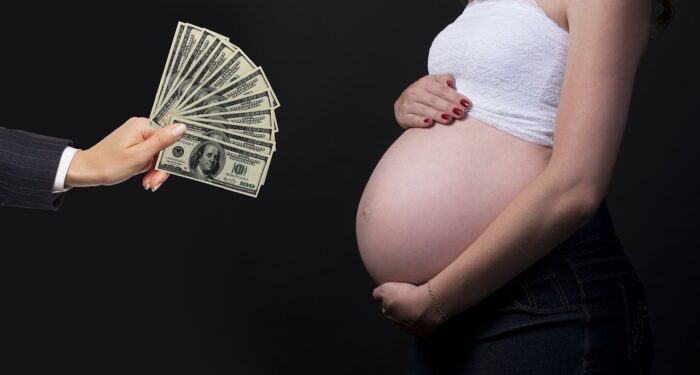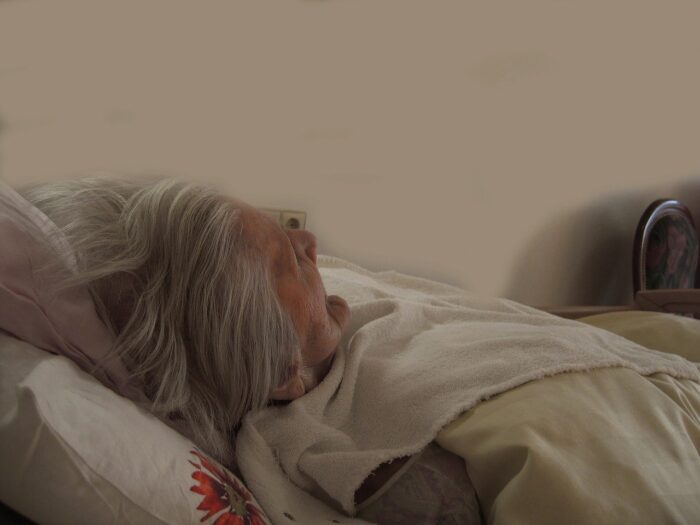
A challenge to the 2021 COVID restrictions on public worship has been filed at the European Court of Human Rights (ECtHR).
A former EU Special Envoy for Freedom of Religion or Belief, Dr. Ján Figeľ, believes blanket bans on public worship are incompatible with the international human right to the communal exercise of religious freedom.
“Religious freedom as a basic human right deserves the highest level of protection. Prohibiting people from worship and communal religious exercise is profoundly illiberal and illegitimate. Worship bans were unfair and disproportionate. Our arguments submitted to the Court demonstrate clearly that blanket bans are violations of religious freedom under international human rights law,” stated Dr. Figeľ.
His case might be the first where Europe’s top human rights court rules on the blanket bans on public worship during the Covid pandemic. The decision would set a precedent for 46 European States with 676 million citizens.

New Zealand’s first so-called “Safe Areas” around abortion providers will be in place from 25 August. A similar law is being planned in Ireland.
Initially six places have been designated as such by the Government. Ireland’s law will be much more broad-ranging.
Safe Areas cover up to 150 metres around a premises where abortions are provided. They prohibit certain behaviours that could be considered ‘distressing’ to a person accessing the centres.
These include: blocking entrances or preventing people from entering or leaving; photographing or videoing someone; providing information about abortion; attempting to dissuade someone from having an abortion; providing anti-abortion pamphlets or similar materials; engaging in protest.
New Zealand Police are primarily responsible for the enforcement of Safe Areas. A person convicted of engaging in prohibited behaviour within a Safe Area may be liable for a fine of up to NZ$1,000 (€560).

A woman is “an adult female”, Sir Keir Starmer has said, in an apparent u-turn on the matter.
The Labour leader also said he did not believe the policy of self-identification was “the right way forward”, and that he believed that “the principle of safe spaces is very important for women”.
The Labour leader had previously pledged to change the law to allow trans people to self-declare gender, reflecting the plans from SNP leader Nicola Sturgeon that were later blocked by Rishi Sunak.
However, the leader of the opposition said that the party had had a “chance to reflect” on what happened in Scotland and now thinks that self identification is not “the right way forward.”
He told a BBC Radio 5 Live phone-in: “We want to modernise the process, get rid of some of the indignities in the process, [but] keep it a medical process.”
Sir Keir has been trying to clarify his views on gender since 2021, when he struggled to say whether or not a woman could have a penis. This year, he said that 99.9pc of women “haven’t got a penis”.
He appeared to go further when telling Nicky Campbell on Wednesday: “Firstly, a woman is an adult female, so let’s clear that one up.”

Italian lawmakers have advanced a bill to extend the country’s ban on surrogacy to couples who seek it abroad.
As in most European countries, surrogacy is already illegal in Italy, though there is a flow of clients who can afford it who travel to countries such as Ukraine and Russia to avail of it. Ireland is moving to make overseas surrogacy much easier for Irish people, including commercial surrogacy.
The bill was approved by the lower house of parliament by a vote of 166 to 109 and now heads to the Senate.
It would make Italian citizens who seek surrogacy in other countries liable for prosecution on their return to Italy.
Under 2004 legislation, anyone involved in surrogacy in Italy could face three months to two years in jail and a fine ranging from 600,000 euros to one million euros.
Eugenia Roccella, the families minister, said the bill puts Italy “at the forefront of the defence of women and children at an international level. We hope this vote will open a global debate on this practice in order to arrive at its abolition.”
Brothers of Italy MP Elisabetta Gardini condemned surrogacy as a “uterus for rent” that “outrages the dignity of women and tramples on the rights of children”.
In Ireland, the Irish Examiner reported that one Irish expert called the move “disturbing”.
Lawyer Annette Hickey, who specialises in IVF and surrogacy law, said “the steps Italy is taking would not be something I agree with.”
While legislation banning citizens from travelling abroad to avail of surrogacy is novel, many countries have moved to ban foreigners from using their domestic surrogacy services.
Georgia’s government recently announced it was banning international surrogacy from January 1 next year.

A majority of women regret their abortions and suffer feelings of sadness and guilt afterwards, according to a study published in the journal Cureus.
“Sixty percent reported they would have preferred to give birth if they had received more support from others or had more financial security,” researchers found.
Of the 226 women surveyed who had had abortions, 33% identified the abortion as wanted, 43% as accepted but inconsistent with their values and preferences, and 24% considered the abortion unwanted or coerced.
Only women who had considered the abortion wanted and consistent with their values associated positive emotions and gains in mental health after their decision to abort.
“All other groups attributed more negative emotions and mental health outcomes to their abortions,” researchers found.
The study undercut the results of a 2015 paper by the pro-abortion group Advancing New Standards in Reproductive Health that claimed that 99% of women have no regrets about abortion.

Japan experienced the largest drop in the number of citizens last year, with all 47 prefectures seeing declines for the first time.
New data from the internal affairs ministry revealed that the population of Japanese nationals stood at around 122.42 million as of Jan. 1, a decrease of over 800,000 compared to a year prior and the 14th straight year-on-year drop.
According to the data, the number of births among Japanese nationals last year was 771,801, the lowest since the start of the survey in 1979. Social and economic reasons have been largely blamed for the country’s low birthrate.
The administration of Prime Minister Fumio Kishida is planning to roll out an “unprecedented” policy package to support families to encourage more people to have children.
“Balancing work and child care is difficult in Japan,” said Yoshinori Hiroi, a professor at Kyoto University’s Kokoro Research Center, citing the realities of generally long working hours and poor support for women entering the workforce as some of the main culprits.
“The employment and living conditions of the younger generation are unstable, making it difficult for them to envision getting married and raising children.”

Fathers cannot withdraw consent for in vitro fertilisation treatment and thereby stop a woman from implanting a resultant embryo, Italy’s highest court has ruled.
The case involved a woman who had decided, with her husband, to undertake IVF six years ago, but decided to have her embryos frozen while she dealt with a personal health problem.
Shortly afterwards, the couple’s marriage broke down and her ex-husband tried to prevent her from proceeding with the pregnancy. Ruling in the Italian woman’s favour, the constitutional court said that a 2004 law that made male consent for IVF irrevocable was not at odds with the Italian constitution.
Judge Luca Antonini said there was a “turning point” when “one or more” embryos were formed, and that the interests of the woman and the embryo had to take precedence over those of the reluctant father. She will now be able to proceed with implantation of the fertilised egg.

Italy’s Prime Minister, Giorgia Meloni, announced that her country is ready to participate in the reconstruction of the Orthodox Transfiguration Cathedral in Ukraine, which suffered damage in a night-time rocket strike by Russian occupying forces.
“The attacks in Odesa, the loss of innocent lives, and the destruction of the Spaso-Preobrazhensky Cathedral deeply sadden us,” stated Italy’s Prime Minister.
“A free nation will not be intimidated, and barbarism will not prevail. Italy, with its unique world-renowned experience in restoration, is ready to join the reconstruction of the cathedral and other cultural treasures of Ukraine,” highlighted Giorgia Meloni.
On the night of July 23rd, Russia carried out another massive rocket attack on Odesa, a coastal city in Ukraine whose historic center is listed as a UNESCO World Heritage site.

Minister for Health Stephen Donnelly has announced full public funding for a cycle of IVF (in vitro fertilisation) for eligible couples from September. The average success rate for people using IVF is only 25pc per cycle and it is strongly age dependent. The cost per cycle in Ireland is around €5,000.
IVF creates spare embryos which are often destroyed or indefinitely frozen if not used.
Asked why the funding is limited to one cycle, the Minister said “this is a first step”.
€10m was allocated in the Budget for IVF funding.
An age limit will be in place for a woman up to 41 years of age and men up to 60, Minister Donnelly said.
To be eligible individuals must be ordinarily resident in the State and referred through their GP to a regional fertility hub.
A couple or individual will not be eligible for publicly funded AHR treatment if either has had voluntary sterilisation.
To ensure the welfare of any children resulting from AHR treatment, an assessment will be carried out, based primarily upon a self-declaration form.
There shall not be more than two intending parents of a child born as a result of AHR treatment and, they shall be in a relationship for at least one year.

The second ever case of assisted suicide in Italy was carried out on Sunday.
The procedure followed upon the Constitutional Court’s 2019 ‘Cappato ruling’ making assisted suicide permissible in certain circumstances. It has however never been legislated for.
The 78-year-old woman of the Veneto region had terminal cancer.
While she was the second such case in Italy, she was the first to have had the drugs and equipment delivered to her directly by the local health authority.
The practice became possible after Veneto’s regional health authority and ethics committee in June approved her request for assisted suicide under the terms of the 2019 ruling.
Previously, three other Italian regions, Marche, Umbria and Friuli Venezia Giulia, turned down similar requests by terminally ill patients wishing to end their lives.